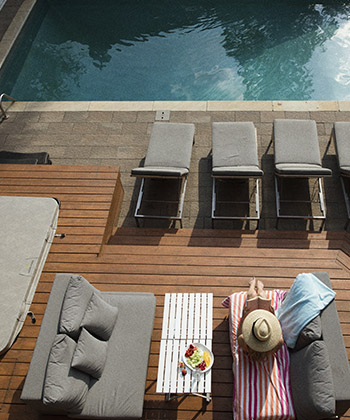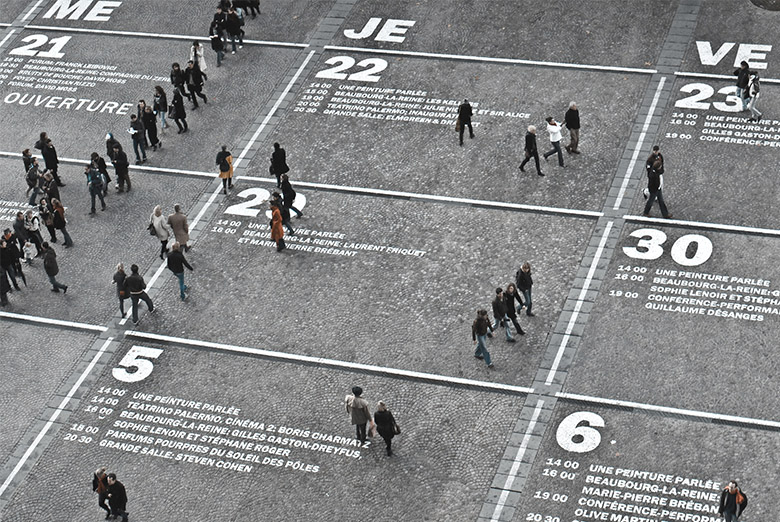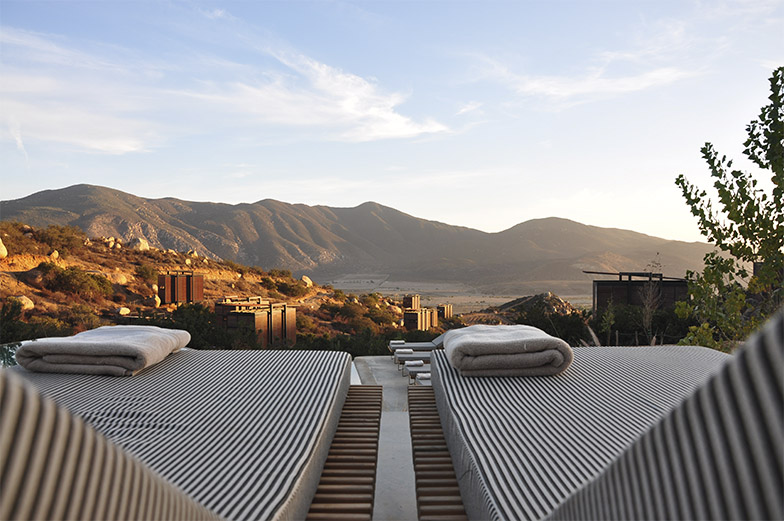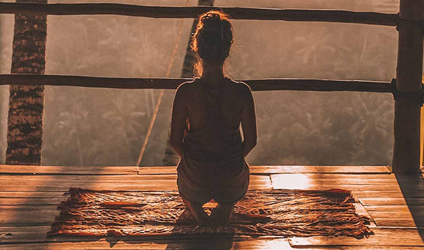Time for Living
Nick Rice
It is the most precious gift but it cannot be bought. It can be lost or gained, squandered or savoured, but its value is yours to decide. Nick Rice explores the changing nature of the ultimate luxury – Time.
“Good morning,” said the little prince
“Good morning,” said the merchant.
This was a merchant who sold pills that had been invented to quench thirst. You need only swallow one pill a week, and you would feel no need for anything to drink.
“Why are you selling those?” asked the little prince.
“Because they save a tremendous amount of time,” said the merchant. “Computations have been made by experts. With these pills, you save fifty-three minutes in every week.”
“And what do I do with those fifty-three minutes?”
“Anything you like...”
“If I had fifty-three minutes to spend as I liked,” said the little prince to himself, “I should walk at my leisure toward a spring of fresh water.”
This exchange, imagined by the French writer, poet and pioneering aviator Antoine de Saint-Exupéry, is from his acclaimed 1943 novella, The Little Prince – the most translated book in the French language.

In the modern world, there is a proliferation of time-saving inventions.
We’re surrounded by them. From microwaves and dishwashers to automatic vacuum cleaners, lawnmowers and virtual assistants like Amazon’s Alexa or Apple’s Siri to – we should have bags of time on our hands.
We enjoy huge gains in the speed in which all manner of things can be achieved. Email and instant messaging have revolutionised both the private and public realm of communications. Computations have been made and the little prince’s extra 53-minutes per week is estimated by time researchers to be more like 54 minutes saved per day in the Western part of the world. But do you really feel the benefit of this extra time?
“Wasting time is becoming more worrying than wasting money.”
That depends on how wisely it is used. If you gain an hour only to use it on more work or for someone else’s needs or any activity you find unfulfilling, was there any real benefit? “You will find no one willing to share out his money; but to how many does each of us divide up his life! People are frugal in guarding their personal property; but as soon as it comes to squandering time they are most wasteful of the one thing in which it is right to be stingy,” Seneca said around 2000 years ago, and it remains as accurate now as it was then.
Time is the ultimate luxury yet all too easily it is swallowed up with one task or another. Many of us, when we have a moment of quiet, reach for the phone to fill it. A trip on public transport or the walk back from the café is bridged with a call, message, email, or a game. Without realising it, we can end up oscillating between inventions, lurching from app to app, constantly engaged with a device for one activity or another. What benefit is any extra time if it’s only filled with online inanity or used to tick off another task on a never-ending ‘To Do’ list?

“What other luxury investment can be as rewarding as time itself?”

Despite there being a steady increase in available leisure time in the West since the 1500s and the Protestant Reformation, and a more recent relaxing of a work ethic which propagates the idea that, “the devil finds work for idle hands,” numerous surveys show that people feel more anxious, stressed out and time-pressured than ever.
Researchers refer to the phenomenon of ‘time poverty.’ A situation where people work so much they don’t feel they have enough time to do the things they’d like to. This can affect high and low earners alike – but notably highly paid workers complain of being cash rich but time poor. People in demanding professions perceive a distinct scarcity of time.
As we transition into the experience economy, where objects have been replaced by experiences as the most valuable things you can buy, time itself has become more highly valued and new notions of luxury revolve around getting the most out of our time. Bespoke vacations filled with exotic activities are finding an audience with time-poor high-flyers who are willing to pay a premium for maximising every second they can get.
With this deeper value, people try to cram as much into their time as possible. The goal is to do more in less time and this can be noted in everyday activities, such as speaking to someone via Bluetooth whilst driving and having a coffee, or watching TV, eating, and surfing the internet all at the same time.

While the intention is to make the most of the time, doing more and more things quickly and simultaneously is actually contributing to the feeling of time scarcity. Multi-tasking is the norm in the digital age. However, while multi-tasking may increase effective time each day, the individual activities can often suffer for the divided attention. As with so many things in life, an increase in quantity is accompanied by a correlating decrease in quality. We all know what it’s like to be in a conversation with someone who is only half present because they’re simultaneously tapping away on their phone.
Time saving apps do undoubtedly work though. Using Shyp.com, a freelance Shyp “hero” will save you travelling to the post office and waiting in line, by collecting and packaging your item for you, dispatching it with a leading courier and sending you the bill. For a monthly $10 fee, the Fetch app will deploy its team of professional shoppers to order items from the internet for you, and include shipping costs in their price comparison. This is time in the bank – but you’re still connected.
We are tying endless Gordian Knots whereby we are using new tech to shave time off many tasks, but at the same time fuelling a growing need to escape the constant screen addiction and disconnect.
"Time is replacing money as the most valued resource."
In our constantly connected world with endless stimulation and a barrage of one way information, people are seeking respite. There is a growing need to regain the time that we supposedly should have saved thanks to technological progress. The 21st century has seen a dramatic rise in the hours we give to tech devices each day and in response there is a growing sector of digital detox retreats that encourage guests to log off, unplug and recapture a sense of quality time.

Detox escapes are booming as more people recognise that time is replacing money as the most valued resource. Wasting time is becoming more worrying than wasting money. One of many examples of these retreats is Stedsans in Sweden. Combining a permaculture farm with a holiday retreat, the resort offers the luxury of fresh healthy meals and both restful and outdoor activities. Sustainability and purpose are pivotal in this “lab for the lifestyle of the future.”
All over the world detox retreats like this are catering to a growing number of people who appreciate that time is short, and precious. Visitors find mindless scrolling is replaced by mindful connection to themselves and nature. The benefits of a digital detox can be long lasting and whether it’s 20 minutes’ daily meditation, an hour on the yoga mat or an afternoon fishing – people are reconnecting with themselves and reassessing the value of their time.
Another successful example is Papaya Playa in Tulum. Founded by Design Hotels, the boutique beach resort may permit digital devices but the focus is on the calendar of wellness experts and star DJs booked to perform. Design Hotels have had such success with the concept they also launched in Mykonos, Rio de Janeiro and most recently in Ibiza with a 10-hectare-farm called La Granja. Hotelier Thierry Teyssier has also identified the trend and founded a project he calls 700,000 Heures – a reference to the average number of hours in a human life span. The ‘nomadic hotel’ concept sees a new property appear every six months in remote places where theatre is performed in dramatic landscapes.

All over the world these alternative retreats are catering to a growing number of people who appreciate that life is short, and precious. Visitors are encouraged to swap mindless scrolling for mindful connection to themselves and nature – and to reassess the true value of time.
For those fortunate enough to be living in developed countries where technology has had the greatest impact, there is more leisure time and holiday allocation from employment than ever before. What remains vital though, is that the innovations which claim to make our lives easier don’t backfire and leave us burning out and working more than before.
The great philosopher, mathematician, historian, writer and political activist, Bertrand Russell, argued that if labour was equitably shared out amongst everyone, the result would be shorter work days, less unemployment and more human happiness, thanks to the increase in leisure time. In his 1935 essay, In Praise of Idleness, Russel advocates a four-hour working day and highlights the fact that, although, “Modern methods of production have given us the possibility of ease and security for all; we have chosen, instead, to have overwork for some and starvation for others.”
Nearly 85 years later it could be argued that not much has changed. Technology has progressed at a dizzying, unprecedented pace, but the benefits of technological progress have not drastically reduced inequality. Bill Gates says, “Technology is unlocking the innate compassion we have for our fellow human beings,” but in such a divided and volatile world, it’s safe to say there’s room for improvement.
Steve Jobs stated that, “Technology is nothing. What's important is that you have a faith in people, that they’re basically good and smart, and if you give them tools, they’ll do wonderful things with them.” So, while things could undoubtedly be better, there is always hope. What comes to the fore as paramount, is that advances in technology and the unceasing march of progress doesn’t impoverish us or the planet.
One of Gate's mentors, the American billionaire business magnate Warren Buffet is known for valuing his down time and he famously keeps his diary with plenty of free days. “I insist on a lot of time being spent, almost every day, to just sit and think… the most important investment you can make is in yourself,” he says.
In an interview with together with Bill Gates and Charlie Rose, Buffet highlights the principle value of time saying, “It’s the only thing you can’t buy. I mean, I can buy anything I want, basically, but I can’t buy time.”
We use the verb “spend” when we talk about time, yet you can’t put a price on it. And when something is considered priceless, it may also be seen as the definitive luxury – and what other luxury investment can be as rewarding as time itself? The challenge in the modern age of hyper-connectivity, shrinking patience and instant gratification, is to carve out some time to just do nothing… to just let yourself be.
Life isn’t short if you know how best to invest in it. As the little prince learned, “It is the time you waste on your rose that makes your rose so important.”

